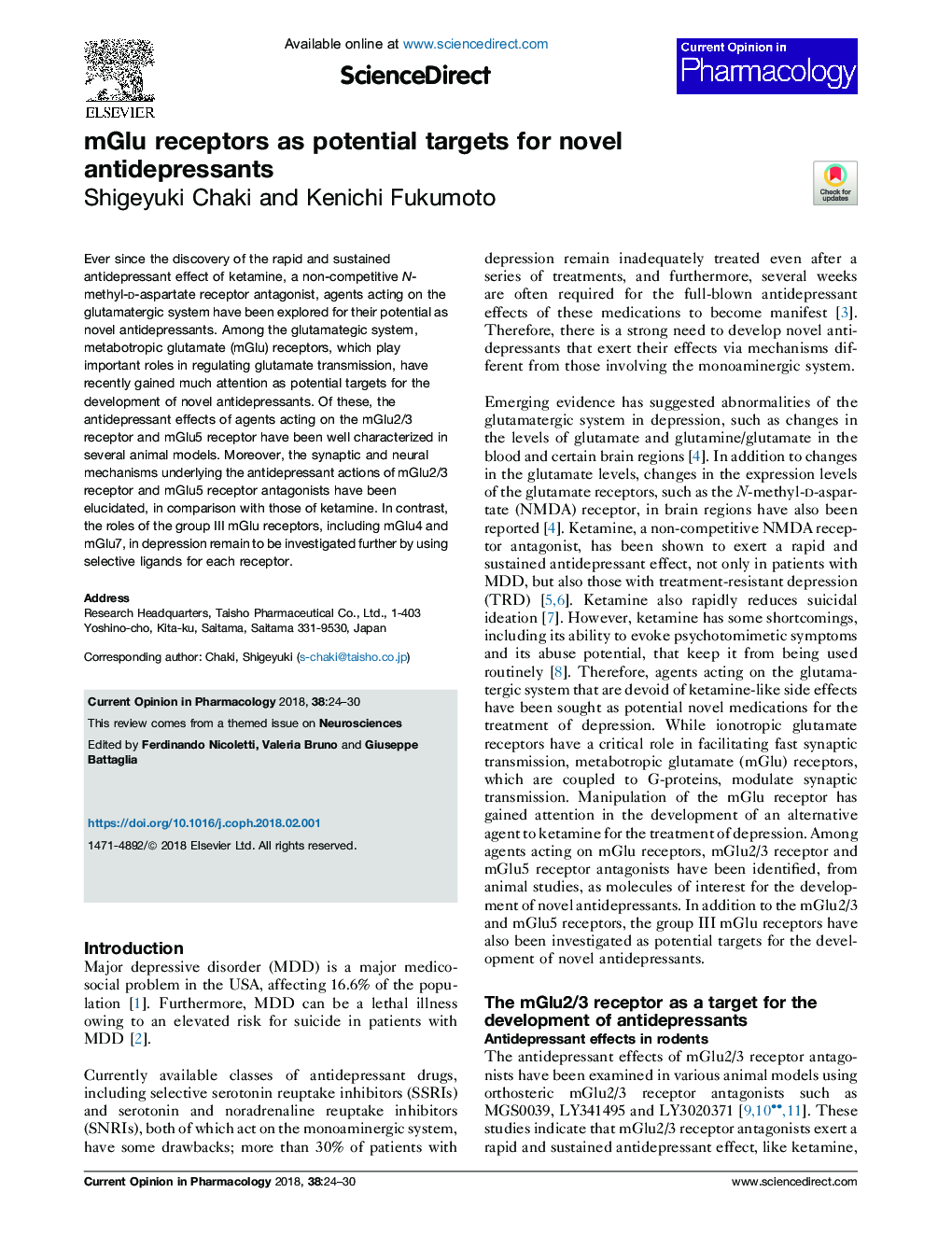| Article ID | Journal | Published Year | Pages | File Type |
|---|---|---|---|---|
| 8528685 | Current Opinion in Pharmacology | 2018 | 7 Pages |
Abstract
Ever since the discovery of the rapid and sustained antidepressant effect of ketamine, a non-competitive N-methyl-d-aspartate receptor antagonist, agents acting on the glutamatergic system have been explored for their potential as novel antidepressants. Among the glutamategic system, metabotropic glutamate (mGlu) receptors, which play important roles in regulating glutamate transmission, have recently gained much attention as potential targets for the development of novel antidepressants. Of these, the antidepressant effects of agents acting on the mGlu2/3 receptor and mGlu5 receptor have been well characterized in several animal models. Moreover, the synaptic and neural mechanisms underlying the antidepressant actions of mGlu2/3 receptor and mGlu5 receptor antagonists have been elucidated, in comparison with those of ketamine. In contrast, the roles of the group III mGlu receptors, including mGlu4 and mGlu7, in depression remain to be investigated further by using selective ligands for each receptor.
Related Topics
Life Sciences
Neuroscience
Cellular and Molecular Neuroscience
Authors
Shigeyuki Chaki, Kenichi Fukumoto,
